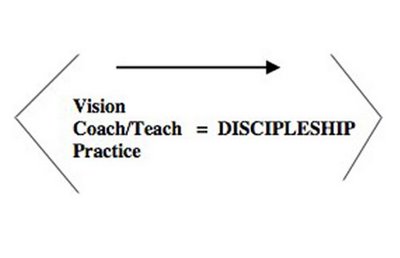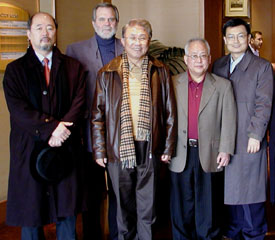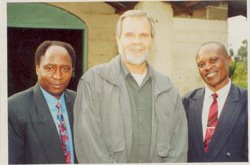
From my second floor balcony I watch the sun rising from the horizon of the Indian Ocean. The tide is going out and soon the boats tied in the deep I will be able to walk to on dry white sand. A few joggers are out, Columbus monkeys bouncing from tree to the ground looking for food. As I look out at the beauty of the coast, I try to think of something inspiring to write to match the experience that I feel, but realize that whatever I put down in type will never do the moment justice. All I can do is record what I see and feel, knowing that anyone who reads this will only relate if they’ve had a similar experience at another time, another place.
Vacations are good for the soul because it allows me to get away from the mundane and see the world from a different perspective. As I look out at the sea my eye cannot see the beyond the horizon. Far different from my flat in Delhi, where as far as the eye can see is the building across the street. The waves breaking on the beach is such a sweeter, soother sound than the noise of auto rickshaws and vegetable hawkers that grate my ears in the city. My morning walks in a polluted city with garbage piled high and open sewers is replaced by fresh air and darting crabs scurrying to their holes in the sand. My life and my work is not here, I will be ready to leave when my time is up, but it’s all good for the moment.
Part of the coastal experience is people watching. When one steps down from the hotel compound and begin their walk by the water any number of guys come up with greetings of “Jambo. Habari yako?” They are either wanting you to book a ride on their glass bottom boat, take skin diving lessons or wanting to sell you a bracelet. They are never sure what to say when I reply in Swahili, taken back that I’m not just another Italian or German tourist. When I speak to them in their language they quickly retreat, as they know badgering does not work with people who have lived in the country.
Was it Pascal, or Voltaire, who, after seeing a naked woman was so repulsed that he never had sex again? Though I am not that repulsed, seeing the fat women wearing unflattering beach attire of the white tourist, one can understand Pascal’s horror. The men, with their pot beer bellies and Speedos, are even more embarrassing. Bay Watch is a television show shot somewhere far away from where I vacation.
Of course the greatest experience of the week is my morning talk with the Creator as I dip my toes in warm water each morning. Looking at such beauty it's impossible not to think of the magnificence and power of God who designed such a place as this. Alone with Him, telling Him my troubles, my praise to Him for allowing me and my wife to experience this semi-paradise for a season, is worth the time and money invested in this get-away. Having no TV, radio or Internet connection for a week, I am forced not to be distracted with a world that is out there with its war, poverty and godlessness. For one brief moment I am captivated by His handiwork and reminded again that He delights in me being still and know that He exists. Will heaven have a beach? I hope so.











